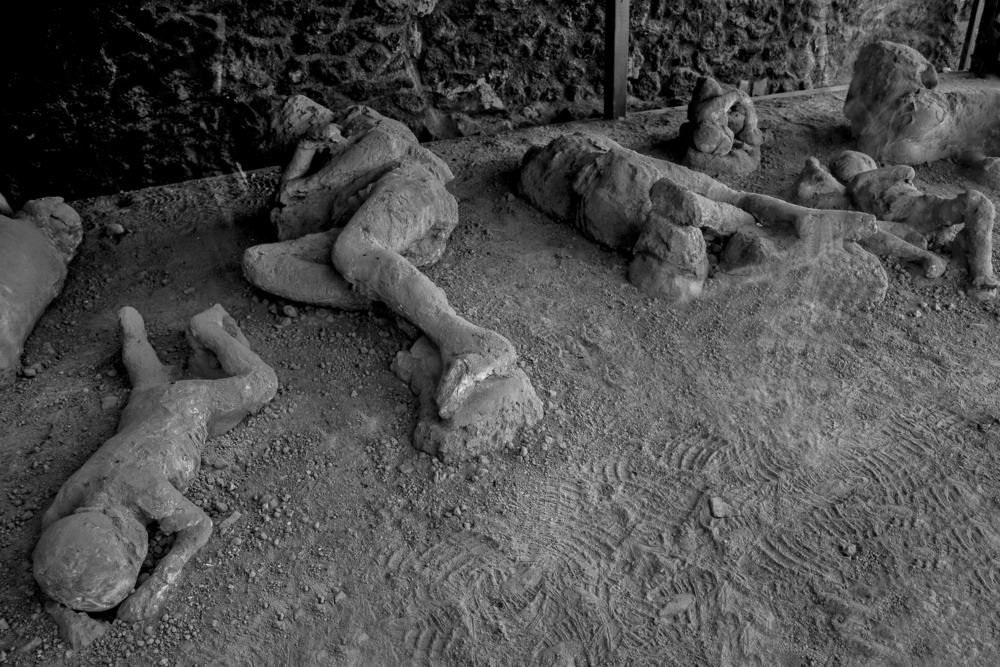Worst Ways to Die Are Pretty Weird (and Gruesome)

Get the world’s most fascinating discoveries delivered straight to your inbox.
You are now subscribed
Your newsletter sign-up was successful
Want to add more newsletters?

Delivered Daily
Daily Newsletter
Sign up for the latest discoveries, groundbreaking research and fascinating breakthroughs that impact you and the wider world direct to your inbox.

Once a week
Life's Little Mysteries
Feed your curiosity with an exclusive mystery every week, solved with science and delivered direct to your inbox before it's seen anywhere else.

Once a week
How It Works
Sign up to our free science & technology newsletter for your weekly fix of fascinating articles, quick quizzes, amazing images, and more

Delivered daily
Space.com Newsletter
Breaking space news, the latest updates on rocket launches, skywatching events and more!

Once a month
Watch This Space
Sign up to our monthly entertainment newsletter to keep up with all our coverage of the latest sci-fi and space movies, tv shows, games and books.

Once a week
Night Sky This Week
Discover this week's must-see night sky events, moon phases, and stunning astrophotos. Sign up for our skywatching newsletter and explore the universe with us!
Join the club
Get full access to premium articles, exclusive features and a growing list of member rewards.
Let's face it — the world is a treacherous place full of dangerous substances, organisms and situations that can kill you. Some are hazards of everyday life — drowning in a bathtub, getting hit by a bus, falling onto train tracks, or having a severely allergic reaction to a bee sting.
Others are equally lethal but somewhat less likely — tumbling into a volcano, standing on the sun's surface, or going for a moonwalk without your spacesuit.
A physicist and a writer spent two years pondering the most outlandish, gruesome and extreme ways to die and wrote a book about them, published April 4, "And Then You're Dead: What Really Happens If You Get Swallowed by a Whale, Are Shot from a Cannon, or Go Barreling over Niagara" (Penguin Books). Then on April 5, they fielded questions from the curious in an Ask Us Anything (AUA) session on Reddit. [9 Weird Ways Kids Can Get Hurt]
Writer Cody Cassidy and co-author Paul Doherty, a senior scientist with the Exploratorium Museum in San Francisco, kicked off the AUA with a brief and disarmingly gleeful description of some unlikely but thought-provoking death-causing scenarios that are covered in their book.
"We looked into questions like what would happen if you swam out of a deep-sea submarine, were swallowed by a whale (surprisingly possible), your elevator cable broke (don't jump. It won't help), if it's even possible to die from magnetism (it is, yay!), if sticking your hand in the CERN particle accelerator is lethal (probably) and many more," they wrote in an introduction to the AUA.
Redditors rose to the challenge, posting over 2,000 comments about potentially deadly scenarios. To the query about whether it might be possible for a sound to be loud enough to kill you, the authors responded that a shock wave produced by an explosion or a meteor impact "can produce a pressure wave which will blow out the alveoli in your lungs."
Another Redditor asked about the strangest fact the authors encountered during their research: They admitted that they were surprised to discover that it "seems impossible" to die from insomnia. They cited an example of a high-school student who stayed awake for 264 hours in 1964, and though he suffered from severe hallucinations and loss of motor control, he recovered completely after getting some sleep.
Get the world’s most fascinating discoveries delivered straight to your inbox.
A fate worse than death
The book includes 45 horrible ways to die, a list that was winnowed from about 200 examples garnered from research and suggestions from friends and colleagues, Doherty told Live Science. [Top 10 Leading Causes of Death]
One method of death that didn't make it into the book was one that Doherty described ominously as "death by the devil's Super Soaker."
"We wondered, what would be the worst material on Earth to put in a Super Soaker? And we came up with chlorine trifluoride," Doherty said.
Chlorine trifluoride is extremely corrosive, produces toxic fumes, is violently explosive in water and is such a highly reactive oxidant — an agent that causes other substances to lose electrons — that it can set fire to sand, according to the National Oceanographic and Atmospheric Administration's database of dangerous chemicals.
"When the fumes hit you, first of all they numb your nerves so you don't know you've been hit. Then, the chlorine will turn your bones to gelatin — your fingers will turn from rods into little rounded stubs. It was so gruesome that our publisher said, 'Why don't you leave that one out?'" Doherty told Live Science.
Thrilled to death
But on Reddit, curiosity about gruesome deaths kept the conversation flowing, with questions like: "If I were floating near a neutron star, say, within 1 mile, how spectacular would my death be?" And, "What would happen to your body if you were tied to a weight and sent to the bottom of the Mariana Trench?"
Death by neutron star would most likely be from exposure to lethal radiation, the authors answered. And intense water pressure at the bottom of the Mariana Trench would collapse all the air pockets in a person's body, not only killing them, but also stranding the corpse at the bottom of the ocean, to be consumed by a type of deep-sea mouthless worm known as the bone-eating snot flower, the authors explained.
Why are people so fascinated by these potentially horrific ways to die? Probably because we recognize that death is waiting out there for all of us, and it's somewhat easier to confront and acknowledge that troubling fact by placing it in a context that is unlikely to ever happen, Doherty explained.
"Whistling past the graveyard is a classic human thing to do," he said. "The idea of facing death in ways that are slightly humorous or exotic helps people to think about their own death in a way that's satisfying."
Original article on Live Science.

Mindy Weisberger is a science journalist and author of "Rise of the Zombie Bugs: The Surprising Science of Parasitic Mind-Control" (Hopkins Press). She formerly edited for Scholastic and was a channel editor and senior writer for Live Science. She has reported on general science, covering climate change, paleontology, biology and space. Mindy studied film at Columbia University; prior to LS, she produced, wrote and directed media for the American Museum of Natural History in NYC. Her videos about dinosaurs, astrophysics, biodiversity and evolution appear in museums and science centers worldwide, earning awards such as the CINE Golden Eagle and the Communicator Award of Excellence. Her writing has also appeared in Scientific American, The Washington Post, How It Works Magazine and CNN.
 Live Science Plus
Live Science Plus










